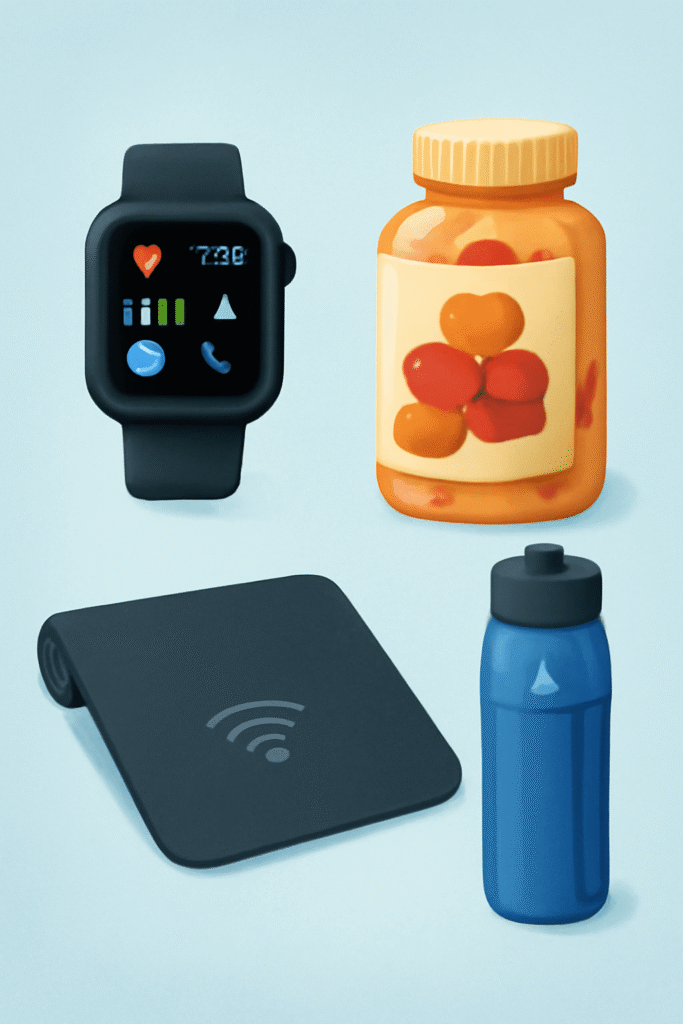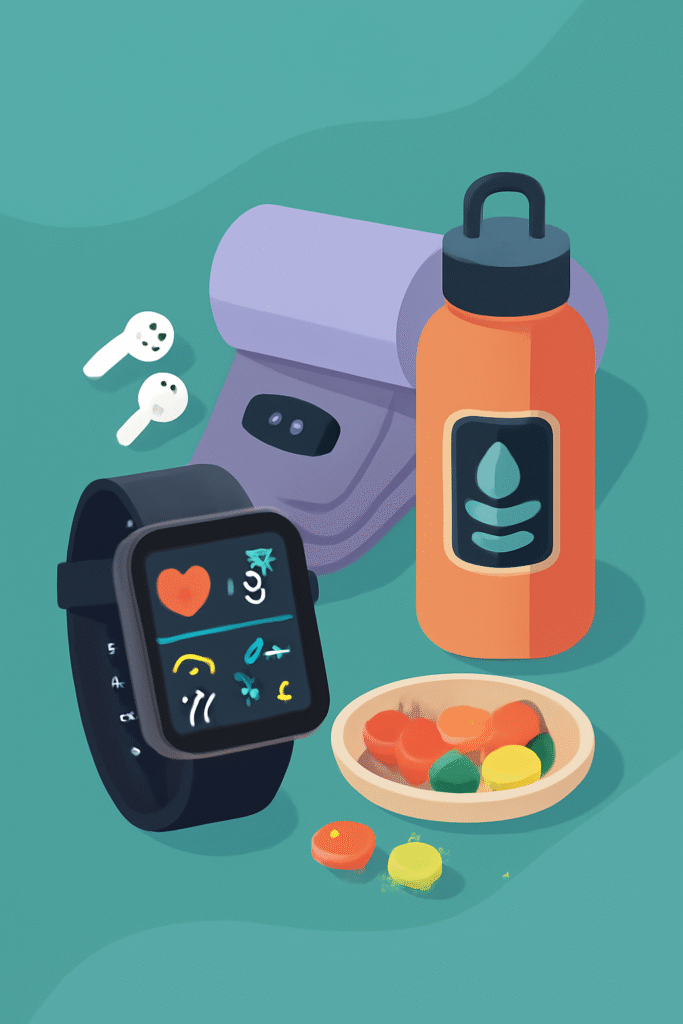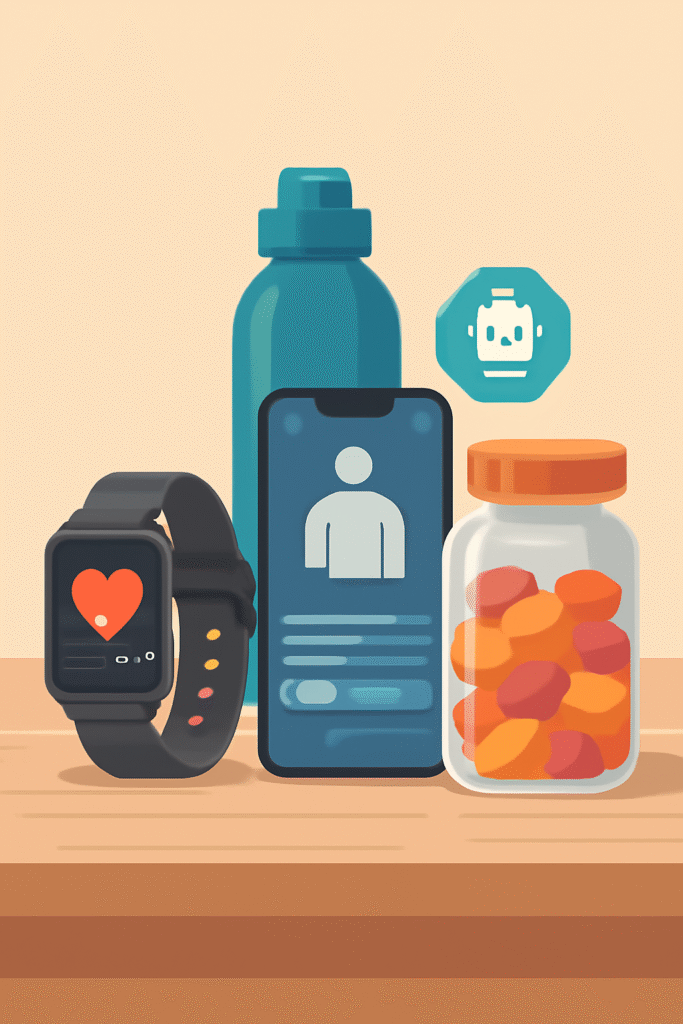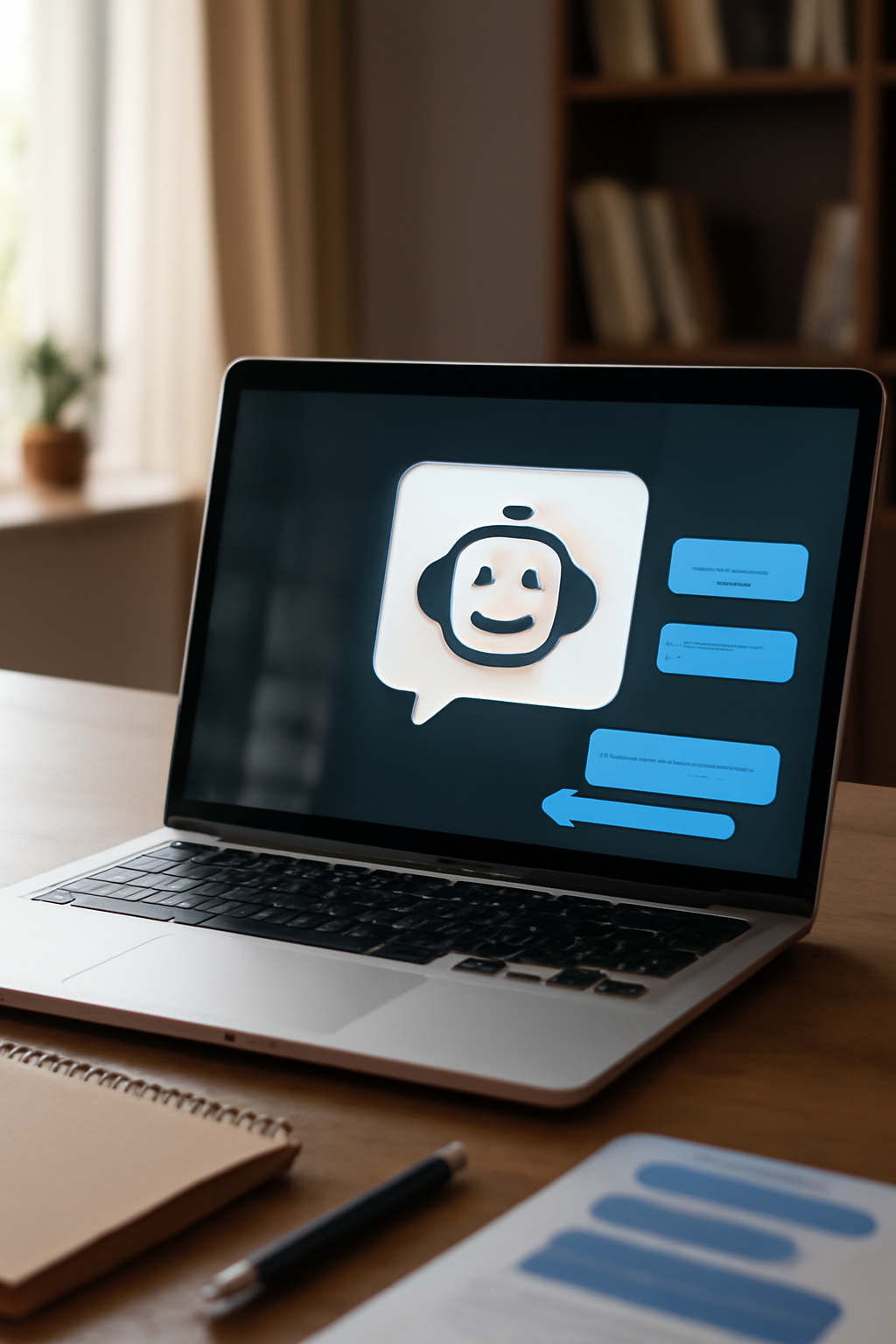🧠 A Nova Fronteira do Cuidado com o Corpo e a Mente
A saúde entrou de vez na era digital — e isso já não é mais uma promessa futurista. De smartwatches a tapetes de ioga com sensores e gomas vitamínicas que parecem doces, a tecnologia agora se estende do pulso até a cozinha.
Academias, consultórios médicos e salas de estar estão repletos de dispositivos conectados que ajudam as pessoas a medir, gerenciar e se motivar em direção a estilos de vida mais saudáveis.
A saúde digital não se trata de dispositivos de exibição; é um movimento em expansão que combina dados, design e hábitos cotidianos para formar uma nova cultura de bem-estar.
1. Wearables: do Monitoramento do Pulso à Transformação do Estilo de Vida

⌚ A Evolução dos Companheiros Inteligentes de Saúde
Anos atrás, os smartwatches eram pouco mais do que pedômetros digitais. Hoje, eles se tornaram verdadeiros observadores da saúde em tempo real — acompanhando a qualidade do sono, níveis de estresse, saturação de oxigênio no sangue e até irregularidades no ritmo cardíaco.
Os modelos mais recentes combinam precisão de nível médico com design minimalista, integrando-se com naturalidade à rotina diária.
O que eles já são capazes de fazer
Detecção de arritmias:
Pulseiras e relógios fitness agora utilizam sensores de ECG e PPG para identificar batimentos cardíacos irregulares, alertando o usuário a procurar orientação médica antes que surjam complicações.
Lembretes de bem-estar:
Dispositivos inteligentes incentivam exercícios respiratórios programados, lembram de alongar o corpo e até sugerem pausas para meditação, promovendo equilíbrio mental ao longo do dia.
Roupas inteligentes:
Camisetas esportivas e vestimentas corretoras de postura contam com sensores embutidos que analisam movimentos e enviam feedback instantâneo — transformando a forma como treinamos, trabalhamos e até como nos sentamos.
Todos esses dispositivos alimentam aplicativos baseados em IA que personalizam rotinas de treino, recomendações alimentares e até agendas de teleconsulta — formando um ecossistema de saúde proativa, construído a partir do aprendizado contínuo.
2. Gadgets Criativos: Saúde como Experiência
🧘♀️ Quando a Inovação Lúdica Encontra o Bem-Estar Diário
Em todo o mundo, startups estão reinventando o setor da saúde por meio de tecnologias interativas e criativas. O objetivo é simples e poderoso: transformar o cuidado com a saúde em um hábito prazeroso, e não em uma obrigação médica.
Garrafas de água inteligentes:
Monitoram os níveis de hidratação e vibram ou acendem quando é hora de beber água. Ajudam a manter o corpo hidratado, beneficiando rins, pele e concentração.
Tapetes de ioga com sensores:
Equipados com pontos de pressão e detecção de movimento, oferecem orientação em tempo real sobre alinhamento corporal, ajudando a melhorar a postura e aprofundar a atenção plena.
Óculos anti-fadiga adaptativos:
Criados para reduzir o cansaço visual causado por telas digitais, esses óculos filtram a luz azul e ajustam automaticamente o brilho conforme o ambiente, protegendo os olhos de estudantes e profissionais.
Esses dispositivos unem ciência e autocuidado — a saúde como uma experiência interativa, e não apenas uma rotina passiva.
3. Gomas: Nutrição Que Realmente Dá Vontade de Consumir

🍬 O Lado Doce dos Suplementos
Quem imaginaria que suplementos nutricionais poderiam parecer doces? Coloridas, saborosas e divertidas, as vitaminas em goma estão transformando a forma como pessoas — de crianças a adultos — encaram a nutrição diária.
Hoje, elas existem em uma variedade impressionante: colágeno para elasticidade da pele, melatonina para o sono, probióticos para a digestão e multivitamínicos para o equilíbrio do dia a dia.
Por que as gomas se destacam
Acessibilidade:
As gomas tornam a suplementação mais amigável para quem não gosta de engolir comprimidos, ampliando o acesso a nutrientes essenciais.
Inovação na formulação:
Novas combinações surgem a cada temporada, unindo sabor e funcionalidade — criando uma rotina de saúde que parece um agrado, não uma obrigação.
Integração ao estilo de vida:
Portáteis e atrativas, elas se encaixam perfeitamente em rotinas aceleradas e conectadas pela tecnologia.
Esse mercado em expansão mostra que o bem-estar pode ser lúdico sem prescindir da ciência. A saúde se torna sensorial, inclusiva e prática — uma mordida de cada vez.
4. Inteligência Artificial: Seu Treinador de Saúde no Bolso
🤖 Dados que orientam, não substituem o humano
Talvez a transformação mais profunda do bem-estar digital esteja no avanço dos consultores de saúde baseados em IA. Conectada a wearables, sensores e até dispositivos domésticos, a inteligência artificial atua como uma camada contínua e invisível de suporte.
A IA é capaz de:
Detectar sinais precoces de doenças:
Ao analisar tendências como variabilidade da frequência cardíaca ou temperatura da pele, os algoritmos identificam mudanças sutis que podem indicar problemas antes mesmo do surgimento de sintomas.
Ajustar planos de exercício e recuperação:
Aprendendo com seu desempenho, os sistemas adaptam volume e intensidade dos treinos para otimizar resultados e prevenir lesões.
Estimular hábitos mais saudáveis:
Por meio de notificações no momento certo, os aplicativos incentivam hidratação, pausas curtas ou atenção ao estresse — microações que, somadas, geram equilíbrio real.
Muito além de um assistente digital, a IA se torna uma aliada que personaliza a prevenção — orientando, educando e sugerindo melhores cuidados, sempre mantendo o ser humano no controle.
5. Impacto Social: Saúde para Todos, Não Apenas para Poucos

🌍 Empoderamento e Ética Caminham Juntos
A revolução da saúde digital traz dois grandes presentes — autonomia e prevenção — mas também levanta questões essenciais sobre igualdade e ética.
O lado positivo
Hoje, qualquer pessoa com um smartwatch pode monitorar sinais vitais, incentivando uma cultura de prevenção em vez de reação.
O monitoramento remoto economiza tempo, deslocamento e custos de saúde, ao favorecer diagnósticos mais precoces e reduzir internações desnecessárias.
O dilema ético
À medida que os dispositivos coletam dados íntimos, a privacidade se torna central.
Quem é dono dessas informações? Como elas são usadas?
Ao mesmo tempo, como garantir que essas inovações cheguem a pessoas de diferentes rendas, regiões e realidades?
A tecnologia pode democratizar a saúde — mas apenas se a humanidade continuar sendo sua prioridade principal.
6. O Futuro Próximo: Personalizado, Lúdico e Preditivo
🚀 A rotina da manhã de amanhã
Imagine acordar e ver seu smartwatch acender suavemente com a mensagem:
“Seu nível de estresse está mais alto que o normal. Respire fundo antes de começar o dia.”
Ou sua garrafa inteligente emitir um brilho discreto, lembrando você de se hidratar antes de uma reunião importante.
Isso já não é ficção científica — é exatamente para onde estamos caminhando.
Check-ups digitais diários, métricas corporais integradas e orientações nutricionais baseadas em IA em breve vão redefinir o autocuidado.
Mas, quanto mais íntima a tecnologia se torna, maior deve ser a responsabilidade.
Propriedade dos dados, consentimento informado e inclusão digital definirão se essa nova era da saúde vai empoderar ou dividir.
Saúde Redesenhada para a Experiência Humana
O futuro do bem-estar será inteligente, adaptável e ético — uma combinação de sensores, algoritmos e compaixão.
Sua força não está em substituir médicos, mas em apoiá-los; não em reduzir pessoas a números, mas em transformar números em compreensão.
Viver bem na era digital significa aprender a escutar — não apenas o monitor cardíaco, mas também o próprio coração.
A tecnologia da saúde deve nos lembrar que progresso não se mede apenas em passos ou calorias, mas em como cuidamos do nosso corpo e do planeta que habitamos.
